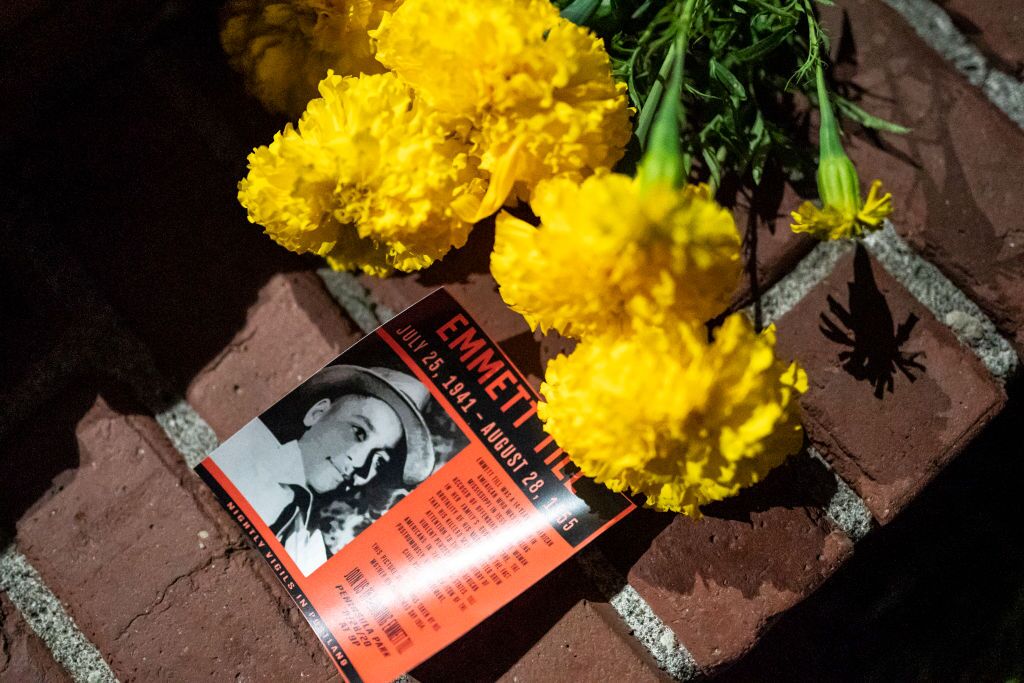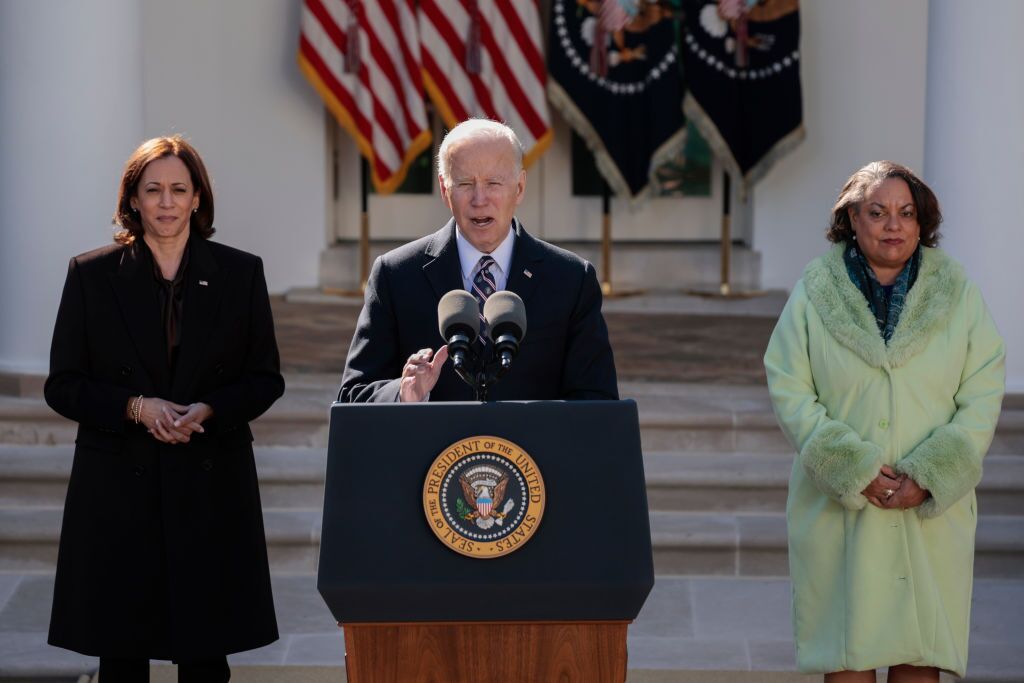Trey Reed, a young Black student, was found hanging from a tree on his college campus of Delta State University in Mississippi on Sept. 15, 2025. Trey Reed was a computer science major first-generation student from Grenada, Miss., who was described as ambitious and eager to create a positive future for himself and his family.
Mississippi police and the Bolivar County coroner’s office have labeled the death a suicide. But Reed’s family members and other advocates, including Reps. Bennie Thompson (D-Miss.) Ayanna Pressley (D-Mass.), activist and former NFL quarterback Colin Kaepernick, attorneys Ben Crump and Vanessa J. Jones (both of whom are representing the family), are calling for further investigation.
Cases like Reed’s awaken questions rooted in legacies of racial violence in the South. “While the details of this case are still emerging, we cannot ignore Mississippi’s painful history of lynching and racial violence against African Americans,” said Thompson in the days following Reed’s death. That history is not distant: Mississippi recorded more lynchings than any other state, and the echoes of those crimes persist in how the deaths of Black people are investigated and discussed. The reflex to dismiss possible racial motives—or to declare a death a suicide before all evidence is known—reflects a deeper national unwillingness to confront the full scope of anti-Black violence.
What We Know About Trey Reed’s Case
Reed was found hanging from a tree on the Delta State campus early on Sept. 15. The state’s state autopsy occurred on Sept. 17, and the findings were publicly announced the next day, Sept. 18, by Cleveland Police.
According to the Mississippi State Medical Examiner’s Office, Reed’s death was officially ruled a suicide by hanging following an autopsy just two days after his death. But Reed’s family disputes the suicide ruling and describes receiving “conflicting accounts and incomplete information” regarding his cause of death. Along with community members and their attorneys, Reed’s family seeks a separate autopsy and an independent investigation.
Civil rights attorney Ben Crump has taken on the case; his lawyer fees are being provided by Kaepernick’s Know Your Rights Camp Autopsy Initiative. Vanessa J. Jones of Jones Law Firm in Hattiesburg is also representing the family.
This second autopsy has been completed but the results have not been released to the public, according to the Mississippi Free Press. (See their full, interactive timeline here.)
A Dehumanizing History of Lynching and Coverups in the U.S.
Outraged at the taglines from other news outlets parroting the police report of no “foul play” in his death, I have been hesitant and conflicted about writing such a difficult piece—especially in this era of censorship and surging white supremacy. But given the incomplete coverage of this tragedy, our Black feminist ancestors make a plea to write about our humanity. Their voices remain painfully relevant.
Trey Reed’s death, and the hasty labeling of it as a suicide, echoes the same patterns of disregard for Black life that investigative journalist and anti-lynching abolitionist leader Ida B. Wells fought to expose. His story must not be forgotten or dismissed as yesterday’s news, because it reflects the same haunting narrative this country has yet to confront.
Trey Reed deserved to grow old … Instead, he was found hanging from a tree at Delta State University—a predominantly white institution in Mississippi. We’ll never have true justice for Trey, because that would mean he would still be with us—but there must be answers.
Rep. Ayanna Pressley (D-Mass.)
Wells wrote about how lynchings were often disguised as suicides—among countless other senseless claims. She not only documented the rates of these murders, but also testified against them when those in power tried to mask their crimes. In her January 1900 essay, “Lynch Law in America,” she warned, “They write reports which justify lynching… and those reports are accepted by press associations and the world without question or investigation.”
In Wells’ first pamphlet on lynching, “A Red Record: Tabulated Statistics and Alleged Causes of Lynching in the United States”—one of the first comprehensive analyses of lynching in America, written in 1895—she wrote:
“Not all nor nearly all of the murders done by white men during the past thirty years have come to light, but the statistics as gathered and preserved by white men, and which have not been questioned, show that during these years more than ten thousand Negroes have been killed in cold blood, without the formality of judicial trial and legal execution. And yet, as evidence of the absolute impunity with which the white man dares to kill a Negro…”
Wells, a witness to the normalization of Black death and the disregard it receives, offers a clear parallel to the lack of attention paid to the political reality surrounding Trey Reed’s death. Her work compels us to question the institutions that control the narratives of such deaths—institutions built on generations of buried truths about the killings of Black people.
The NAACP defines lynching as a “public killing of an individual who has not received any due process.” Yet it must also be understood as a broader tool of white supremacist control—manifesting in targeted killings meant to enforce racial hierarchy and terrorize entire communities.
Lynching, alongside mutilation, hyper-surveillance and apartheid are all tactics of disproportionate violence concentrated in the exploitation and oppression of Black and brown bodies. Today, we must move beyond associating lynching solely with the brutal hanging of Black men. We must also recognize how police brutality, sexual violence and any state-sanctioned or socially justified harm against Black and brown people function as modern expressions of lynching—acts of profound dehumanization.
This analysis was extended by Angela Davis in her 1983 essay, “Rape, Racism and the Myth of the Black Rapist,” in which she details how racist stereotypes became systemic ideology to justify the killings of Black men and women. As Davis writes, “Before lynching could be consolidated as a popularly accepted institution, however, its savagery and its horrors had to be convincingly justified. These were the circumstances which spawned the myth of the Black rapist.”

Trey Reed was found only 50 miles away from the Tallahatchie River where 14-year-old Emmett Till was found on Aug. 31, 1955, during the Jim and Jane Crow era of the South. (He had been abducted on Aug. 28, 1955, in Money, Miss., and his body was discovered in the river three days later.)
Regardless of Reed’s cause of death, and whether or not he suffered the same violence as Emmett Till, his story awakens silenced narratives about the enduring legacy of racial violence against Black people in the South (and across the United settler colonial States more broadly). These patterns of disregard and erasure continue to be exonerated and swept under the rug today. In an era when right-wing leaders, including the president, openly glorify “law and order,” ban truthful discussions of race and embolden white nationalist rhetoric, it is clear that the systems enabling anti-Black violence remain deeply entrenched.

During times like these, it is essential to understand the context of violence in which Black people live—and to revisit those who came before us and fought to protect Black life—in order to resist the growing desensitization to Black death.
How did other Black women of the past advocate against the very realities Black Americans are still experiencing?

Legacies of Black feminist foremothers like Wells and suffragist Frances Ellen Watkins Harper are particularly relevant at this moment. Although the language of feminism wasn’t yet prevalent during their lifetimes (in the mid- to late 1800s and early 1900s), their work revealed how race and gender shape one another—a foundational insight that continues to inform struggles for justice today.
The dehumanization of Black women and men through lynching was often justified through racialized gender schemas, depicting Black men as sexual predators who threatened white femininity and Black women as exempt from womanhood because of their sexual objectification, as Wells articulated in Southern Horrors. She described how white supremacy becomes judge, jury, and executioner, depriving Black people of their humanity and enforcing the ideology that they are inherently criminal and subhuman. For Wells, lynchings were not only a matter of race but also a feminist issue and women’s suffrage issue—despite the discrimination she faced in the movement due to misogynoir..
Wells’ abolitionist vision and relentless campaign against lynching still resonate today. As persecution, family separation and racial profiling persist across the U.S., it is crucial to confront the historical roots of this violence. Her words worked to humanize Black lives, continuing her legacy and demonstrating why Black feminist praxis remains both relevant and urgent.
Lynching, a direct consequence of slavery, is a tool of white supremacist control designed to instill fear and enforce racial hierarchy. Watkins Harper underscores how the racialization of Black people in the United States is tied to systemic domination, which subjugates Black people to inferiority. In Watkins Harper’s 1881 address to the National Council of Women, she critiques the legal system as inherently demoralized operating off the labor, violence and exploitation of Black people, while enabling the political domination of white elites.
Lynching was and is a tactic of domination. Frederick Douglass wrote that it was “undisguised as counterinsurgency,” justified by myths of Black conspiracies and plots to harm white people. Today, white supremacist perspectives embedded in right-wing propaganda continue to reinforce systemic violence, institutionalized lynchings and the militarized surveillance Black and brown communities live under.
The chronic policing of Black and brown people’s movement is tangible and anxiety-inducing. Deployment of the National Guard under the guise of “protection” raises urgent questions: Protection from whom, and for whom? Who is deemed deserving of safety?
The criminalization of Black and brown people stems from the same mechanisms that historically justified lynching, illustrating how white supremacy dictates whose lives are protected, mourned or regarded as valuable.
Hearing that another Black person has been lynched cannot become normalized in this country.

How can revisiting the past help us resist current realities of racism, state violence, and militarization? How can we call on our Black feminist ancestors to guide us in resisting violent oppression against Black and brown communities? It is time to reignite abolition work.
The groundwork has been laid, but the work is far from done. Through their writings, insights and documentation, Black feminists—past and present—offer examples of resistance and a call to action: to mourn and remember the Black communities ruptured by lynchings; to recognize how the foundations of this violence are being repackaged against missing immigrants and families being kidnapped by ICE; and to affirm our inherent humanity. They challenge us to amplify what the Trump administration seeks to silence about race and to think critically about the media we consume and its strategic appeals to conservatism.
Rest in power, Trey Reed.
Great Job Simone Jacques & the Team @ Ms. Magazine Source link for sharing this story.



